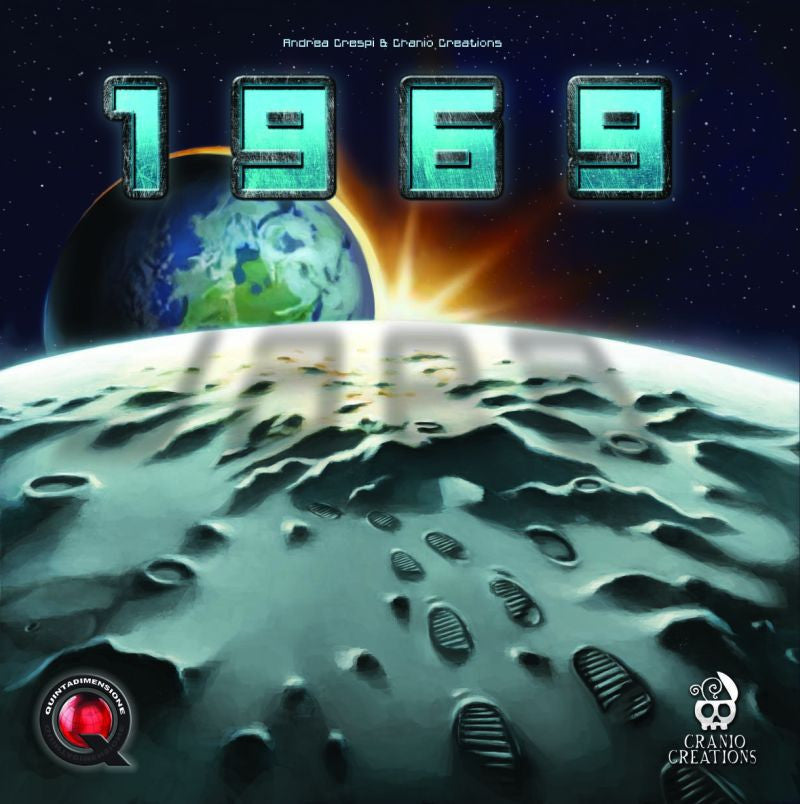1969 - Free Shipping
Couldn't load pickup availability
Delivery and Shipping
Delivery and Shipping
For more details, please refer to our Shipping and Order Information.
Description
Description
| Designer |
Aureliano Buonfino Andrea Crespi Lorenzo Silva Lorenzo Tucci Sorrentino |
| Publisher | Cranio Creations |
| Players | 2-5 |
| Playtime | 60 mins |
| Suggested Age | 12 and up |
Note: Purchasing this game entitle you to Free Shipping for your entire order anywhere within Canada.
1969 is a push-your-luck style game in which players take the role of the leader of a particular nation's space program attempting the first successful lunar landing mission.
Each turn, players use their income to hire scientists to research technology to improve their chances, hire spies to slow other players down, purchase cards to influence their missions and their competitors, or attempt easier, preparatory missions. Players gain victory points for performing well on prep missions, attracting famous scientists to their cause, and of course, how far they got on the moon landing mission.
The core of the game are the mission tests, which consist of rolling five dice. Dice have success, neutral, and failure results, which add to your success rating, do nothing, or subtract from your success rating respectively. The total of your successes will determine the points earned from the mission and whether you'll get a bonus on the final lunar mission. Die rolls can be affected by technology and your success can be affected by having scientists researching relevant techs and card play (from a player or their opponents).
1969 combines simple dice mechanics with elements of resource management and even some light engine building to make an interesting light weight experience. There are some mechanics of player interference (meaning players can disrupt each other's progress) but these elements may be avoided if desired.

